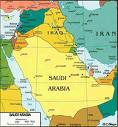Bloody Entanglements: Saudi Arabia, Britain and Yemen

“How our ally is using British arms runs counter to our self-proclaimed role in the world, and our aid efforts.” – Major General Tim Cross, Dec 14, 2015.
The Saudi Arabian effort in Yemen has been essentially written off by its Western allies as one of those things. In terms of strategy, there are bigger fish to fry in Syria, and areas where the next feted bogeyman, Islamic State, is doing its work. And yes, while Saudi Arabia allows decapitation, amputation, established laws of misogyny and a range of restrictions against Islamic faiths not quite in line with the House of Saud, it is an ally. And allies are good to stand by – aren’t there?
The case of Yemen suggests that amnesia is settling in over the entire landscape. The House of Saud is playing its cards well, conducting its relations with the West in a manner that combines disdain and grovelling in equal measure. There are enemies in Yemen it would like to vanquish, and so far, it has gotten some of what it wants. Not that its enemies are going into the night quietly.
Since the intervention began in March, Shiite Houthi rebels, who are assisted by military forces loyal to former President Ali Abdullah Saleh, continue to maintain their stronghold in the capital Sana’a. The Hadi government in exile functions in Aden, Saudi Arabia’s preferred choice. From the air, the Saudi forces pummel targets and have made a good go of pummelling the capital. On the ground, there are dangers of Islamic State suicide attacks. (In September, two suicide bombers detonated themselves in the Houthi-run Balili mosque in the capital, killing 29.)
The population are feeling, as they tend to in such situations, the greatest effects of the actions, with 60 percent, according to the World Food Programme, close to starvation. To date, the United Nations claims 5,800 people have perished in the conflict.
While the Saudi presence in attacks on Syria is minimal, it leads the mission against Yemen, supplemented by forces from the UAE, Qatar and Bahrain. It was recently reported by Amnesty International that the Saudi-led forces between August and October 2015 conducted five airstrikes that involved the deliberate targeting of schools. This led to the deaths of five civilians, injuries to 14 others and disruption to some 6,500 children.[1]
A range of other facilities connected with aid have also been hit by coalition forces with devastating effect: a relief warehouse run by Oxfam; two bases of the Save the Children Fund; and clinics operated by Médicins San Frontières.
The double bind of the Saudi relationship with other states, a good deal lathered in hypocrisy that it is, crops up whenever there are public discussion between Riyadh and other Western governments. This takes place on two levels – an internal one, given the Kingdom’s approach to human rights; and an external one, with its financial and military role behind global Sunni militancy.
A neat, if supreme example of ghastliness has been David Cameron’s stance on the subject of condemning anti-war opponents at home as terrorist sympathisers while cuddling up to Riyadh, a long-time recipient of British military hardware.
In October, the veteran journalist John Snow put Cameron through the wringer to see why he had been so keen to get a seat for Saudi Arabia on the UN Human Rights Council. Such a gesture was tantamount to placing an overly enthusiastic fox in the chick coop.
Having made it clear that the PM and his government opposed “the death penalty anywhere and everywhere and we make that clear in all our international contacts,” Cameron faced an incredulous observation from Snow. The stance was “curious” given the “squalid” deal to lobby the Saudis in joining the Human Rights Council of the United Nations.[2]
On facing one of Snow’s barrages as to why it was done, with persistent deflections from Cameron, the nub was finally reached. The relationship with Riyadh was important because “we receive from them important intelligence and security information that keeps us safe.” Bomb plots had been stopped in their tracks as a result. What does it matter what that government does to its citizens?
The external nature of Riyadh’s policy has also placed Britain’s Middle East policy under scrutiny, one that has intensified ahead of UN-sponsored peace talks. Even members from Cameron’s own party were wondering if the PM had muddied the slate with military support for the Kingdom just as humanitarian aid was being supplied to Yemen. This, despite assertions by Foreign Secretary Philip Hammond that a “legitimate war” is being conducted.
Andrew Mitchell, former Tory cabinet minister, has taken exception to Britain’s entangled role regarding Saudi Arabia and Yemen. “Britain’s humanitarian and foreign policy are pursuing different ends.”[3] As Yemen was being pulverised, “we try to get aid in through ports which are being blockaded and while British ordnance is being dropped there.” Since the conflict began, some 37 export licenses for military goods have been granted.
Retired Major General Tim Cross, while conceding that selling arms to the Kingdom was “well within” the rights of Britain, saw a patent inconsistency. There was “a clear risk that the government is complicit in indiscriminate attacks in civilian areas – breaches of international and UK law.”
This conflicted policy has been costly – £400 million in taxpayer aid to Yemen, paired with arms sales to Riyadh. But such costs are nothing compared to the slaughter on the ground, the product of a certain breed of terrorist sympathising UK foreign policy has been showing for a time. Different ends, indeed.
Notes:
[1] http://www.amnestyusa.org/news/press-releases/bombing-of-schools-by-saudi-arabia-led-coalition-a-flagrant-attack-on-future-of-yemen-s-children
[2] http://www.independent.co.uk/news/uk/politics/jon-snow-challenges-david-cameron-over-deal-with-saudi-arabia-read-the-transcript-of-the-interview-a6684161.html

